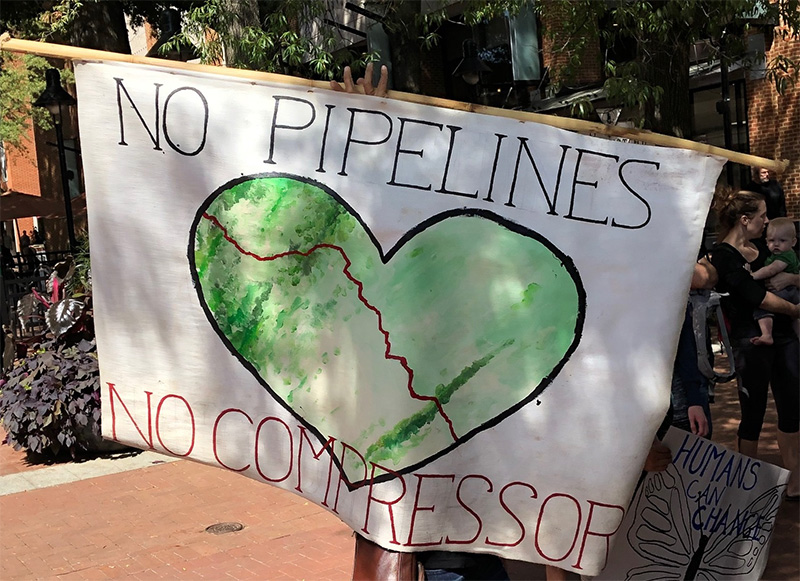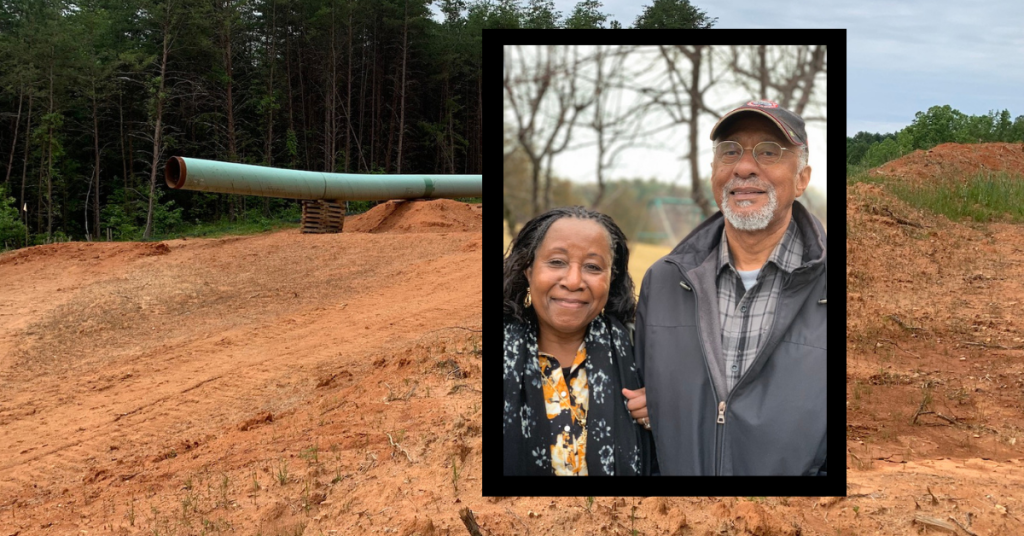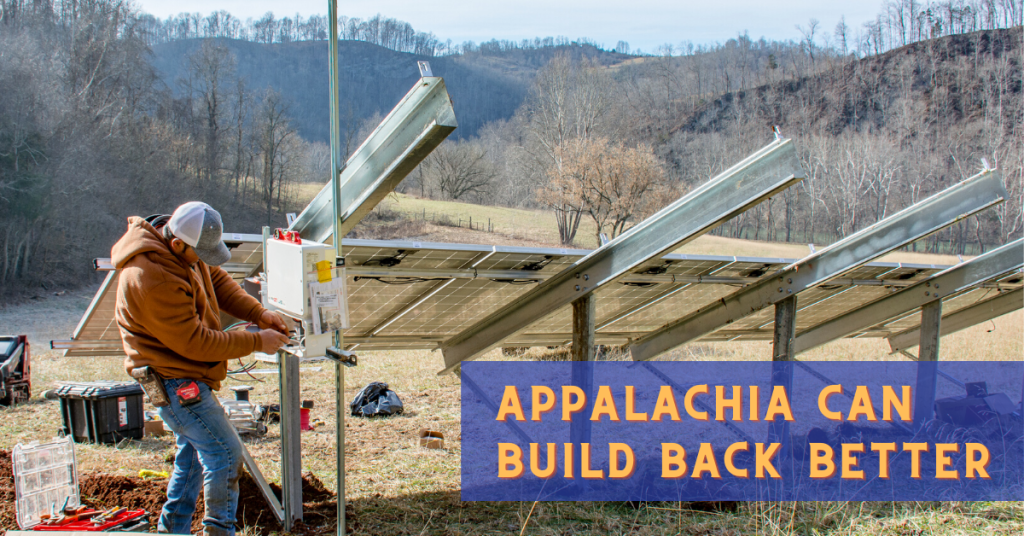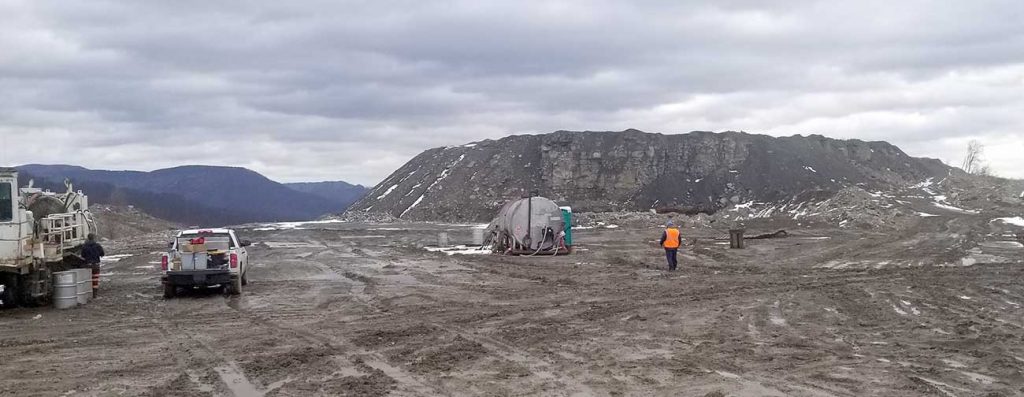Cleaning Up Coal Ash
For well over a century, power plants across the country have burned coal to generate electricity. And for just as long, leftover coal ash has been dumped in open, unlined pits near the power plant, usually located on a river or lake. Every year, U.S. power plants produce 130 million tons of coal ash, which is the second largest waste stream in the country after municipal garbage.
Coal ash concentrates the toxic heavy metals found in coal, including arsenic, mercury, lead and selenium. Stored in unlined, wet impoundments, coal ash has been leaking these toxics into our groundwater and surface waters for years. Sometimes these impoundments collapse — with disastrous results.
Yet government regulations for coal ash management are either non-existent or sparse, and there is little enforcement of the regulations that do exist. In North Carolina, this lack of oversight — and the complicity between state regulators, elected officials and Duke Energy — came to a boiling point in February 2014 when one of Duke’s coal ash impoundments spilled 39 million tons of ash into the Dan River.
Citizens living near North Carolina’s 33 coal ash impoundments — all of which have leaked — have fought for transparency from Duke and the state, and for cleanup of the pollution that threatens their property value, health and family. Their actions forced this issue into the headlines of news networks and to the forefront of environmental justice conversations in the United States.
Appalachian Voices stood with these communities as we worked for years to compel Duke Energy and the N.C. Department of Environmental Quality to excavate coal ash from all the North Carolina sites and dispose of it either in lined, dry landfills, away from waterways, or by recycling it for concrete or other uses, provided it’s done in a manner that protects public health and the environment.
On Jan. 2, 2020, North Carolina announced a historic settlement with one of the state’s most powerful corporations and polluters, Duke Energy. The settlement requires Duke to move nearly 80 million tons of toxic coal ash at six of its power plants to properly lined landfills onsite or recycle it.

Learn information about specific coal ash impoundments in the South, including health threats and safety ratings:
Additional Resources
Fact sheets, videos, links to academic research, and more
Sign Up to Act
Help us protect the health of our communities and waterways.
Latest News
Chatham residents and others to speak against Lambert Compressor Station at air board hearing
On Friday, Virginia’s Air Pollution Control Board will rule on Mountain Valley Pipeline’s hotly contested plan to place a polluting compressor station in a majority Black district already burdened with air pollution from two other compressors.
Black Appalachian Coalition Aims to Shift Narrative on Energy, Other Issues
The Black Appalachian Coalition is seeking to amplify the voices of Appalachia’s people of color, whose stories are often left out of policy discussions about energy and other issues in the region.
Bishop Marcia Dinkins, the group’s founder and executive director, recently talked with the Energy News Network about the coalition’s work.
Residents Near Proposed Lambert Compressor Station Push Back, Cite Environmental Racism
A Pittsylvania County community is urging the Virginia Air Pollution Control Board to deny a permit for Mountain Valley Pipeline’s proposed Lambert Compressor Station, which would pressurize and pump natural gas, emitting air pollution in the county’s historically Black Banister District.
House vote gives Senate an opportunity to spur clean energy investments in Appalachia
CONTACT: Molly Moore, Appalachian Voices Communications, (847) 401-3633,…
Cleaning up mines owned by Gov. Justice and his family would create hundreds of jobs
There is enough outstanding reclamation liability on coal mines owned by West Virginia Governor Jim Justice and/or his adult children to employ 220 to 460 workers for five years, according to our report. Nearly 34,000 acres of Justice-family mines across five states are in need of some degree of environmental cleanup.
NC’s bad ratepayer bill passed into law
Despite immense pressure from advocates and ratepayers, NC Gov. Roy Cooper signed HB 951, Duke Energy’s handwritten legislation that will drastically raise rates on families and small businesses, into law.











